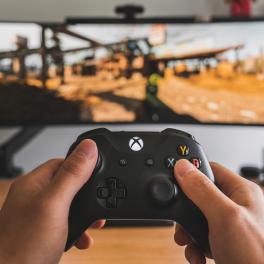
Another TikTok filter has gone viral with the hashtags #boldglamour and #boldglamourfilter having more than 900 and 400 million views, respectively.
But there are a lot of concerns about the effects it could have on people’s mental health.
But filters, especially beautifying ones, have been a mainstay of social media platforms for a long time now, so why did this one cause such a response?
What Makes Bold Glamour Special?
Until now, users could usually identify if a TikTok beauty filter was used in a video. With Bold Glamour, however, many found it almost impossible to tell if the filter was turned on as there is minimal distortion to the image, creating a very realistic “enhanced” version.
Alexa Youssefian, TikTok’s spokeswoman, declined to discuss the technology behind the filter. But specialists have chimed in to shed some light on how this technology works.
A professional social media filter creator, Laura Gouillon, suggested that the Bold Glamour filter looks like it uses Kylie Jenner's face as a template for a machine learning algorithm and then combines it with users' faces.
Hany Farid, a computer science professor at the University of California, Berkeley, said the filter likely uses generative AI; a technology that studies billions of images and text samples, often from the internet, to create new images or words.
Similarly, Luke Hurd, an Augmented Reality Speaker/Instructor who has created filters for Snapchat, believes that this filter appears to use a machine learning technology called Generative Adversarial Networks, or GANs.
In a recent video, he explained that “a traditional filter takes your 2D screen and then overlays a face mesh on top that tracks to your face.”
In the same video, he added that traditional filters track your face in real-time and that’s why it freaks out and glitches when you move your hand in front of the camera.
He went into further detail in a second video and explained that Bold Glamour uses a machine learning technology called Generative Adversarial Networks, or GANs.
Filters that use GANs take your image and compare it to a dataset of other images, and then redraw your picture, pixel by pixel on the output of your camera feed.
The Effects It Has on Mental Health
Many users have stated that this filter may be harmful and that it should come with a warning, as it reinforces unrealistic beauty standards.
“The Bold Glamour filter can definitely damage a person's self-image,” said New York-based clinical psychologist Jaci Lopez Witmer, “In extreme cases, the filter can lead to physical dysmorphic disorder”.
Body Dysmorphic Disorder is characterized by persistent and intrusive preoccupations with an imagined or slight defect in one's appearance, according to Psychology Today.
Witmer also believes that users could experience cognitive dissonance because the filter clashes with their own self-image.
According to Psychology Today, cognitive dissonance is described as the feeling of discomfort “when two or more modes of thought contradict each other”.
A City University of London report called, "Changing the Perfect Picture: Smartphones, Social Media and Appearance Pressures," found that 90% of women aged 18-30 use filters on their social media images because of the pressure they feel to conform to perceived beauty standards.
But women aren’t the only ones who use filters. Another study, done by Consumer Reports, states that around 21% of Americans of any gender have reported using filters on their photos before posting them to social media. 9% admitted to “always or nearly always” using them, while 13% said they used the tech “often.”
Social Media Is Not Real Life
We already had to deal with countless posts of celebrities being so-called flawless, but competing with an artificial version of ourselves that doesn’t exist anywhere in the world is nightmare fuel for our body image and self-esteem.
Real life isn’t, and shouldn’t try to be whatever the unattainable beauty standards promoted by social media claim to be “perfect”.
What some media influences and beauty filter peddling apps call imperfections, I call what makes us not just beautiful, but human too.
Support Young Creators Like This One!
VoiceBox is a platform built to help young creators thrive. We believe that sharing thoughtful, high-quality content deserves pay even if your audience isn’t 100,000 strong.
But here's the thing: while you enjoy free content, our young contributors from all over the world are fairly compensated for their work. To keep this up, we need your help.
Will you join our community of supporters?
Your donation, no matter the size, makes a real difference. It allows us to:
- Compensate young creators for their work
- Maintain a safe, ad-free environment
- Continue providing high-quality, free content, including research reports and insights into youth issues
- Highlight youth voices and unique perspectives from cultures around the world
Your generosity fuels our mission! By supporting VoiceBox, you are directly supporting young people and showing that you value what they have to say.





